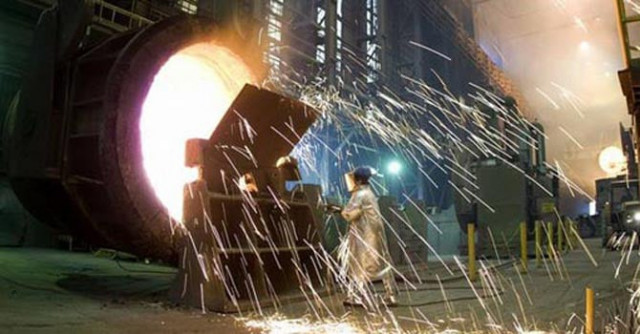A look back at history of PSM
Country set up the mill, silencing bureaucrats, who never believed in the plan.

Those who served PSM in its initial years say that despite repeated setbacks and continuous delays, the construction of the mill is a big achievement. PHOTO: REUTERS/FILE
Those who served PSM in its initial years say that despite repeated setbacks and continuous delays, the construction of the mill is a big achievement.
“Top bureaucrats and engineers of that time used to say that this project will never materialise – let alone in the scheduled time frame – mainly because of numerous financial constraints and bureaucratic hurdles,” former PSM chairman Haq Nawaz Akhtar said, who headed the mill from 1981-1986.
People who think PSM is a national asset and it should be revived at all costs say the mill has contributed Rs103 billion to date in duties and taxes. At the same time, it cannot be ignored that accumulated losses of the mill are also in billions that can only be recovered once it returns to profit.
With a workforce of 16,000, experts say PSM is overstaffed by at least three times. For instance, its per person production capacity is just 50 tons of steel per year, which is very low according to private steel mill standards in the country.
A private steel mill produces 350 to 450 tons per person per year while South Korean and Japanese mills produce 1,300-1,500 tons per person per year, chief executive of a private steel mill told The Express Tribune.
Over the years, successive governments have appointed their favourite people on top posts who took hefty salaries up to Rs1 million a month. On the other hand, regular employees, who rose to top management positions, got a maximum of Rs150,000 a month.
Industry officials believe that the government should run the mill under a private management first and sell its shares later when it returns to profit. According to them, at this stage the mill will not fetch a right value. Moreover, any investor who buys a stake should be bound to run the plant, otherwise, he will sell it and use its highly valuable land.
Short history
The idea of a steel mill was floated in the first five-year plan of 1955-60, but owing to financial constraints, Pakistan was not able to implement it until 1969. That year, Pakistan signed an agreement with former Soviet Union for a feasibility report on the steel mill.
Former prime minister Zulfikar Ali Bhutto laid the foundation stone of Pakistan Steel Mills on December 30, 1973.

Construction work started in 1974 by a consortium of Pakistani companies under the supervision of Soviet engineers and experts. According to former PSM employees, more than 400 Russians were involved in the project.
The industrial complex was built with a huge investment of around Rs25 billion (or $2 billion according to the rupee-dollar parity at the time).
It first produced coke from coke oven batteries in 1981. Later, billets, hot-rolled and cold-rolled products were produced one after another. The mill started commercial operations on December 25, 1984.
The Soviet Union established 35 steel mills in different countries and 1.1 million tons was the standard capacity of those mills. PSM was one of them. But, according to industry officials, Pakistan was one of the few countries that failed to expand their steel mill. The mills set up with Soviet assistance in Iran and other countries are now running at an annual capacity of about three million tons.
Published in The Express Tribune, November 11th, 2013.
Like Business on Facebook, follow @TribuneBiz on Twitter to stay informed and join in the conversation.



















COMMENTS
Comments are moderated and generally will be posted if they are on-topic and not abusive.
For more information, please see our Comments FAQ